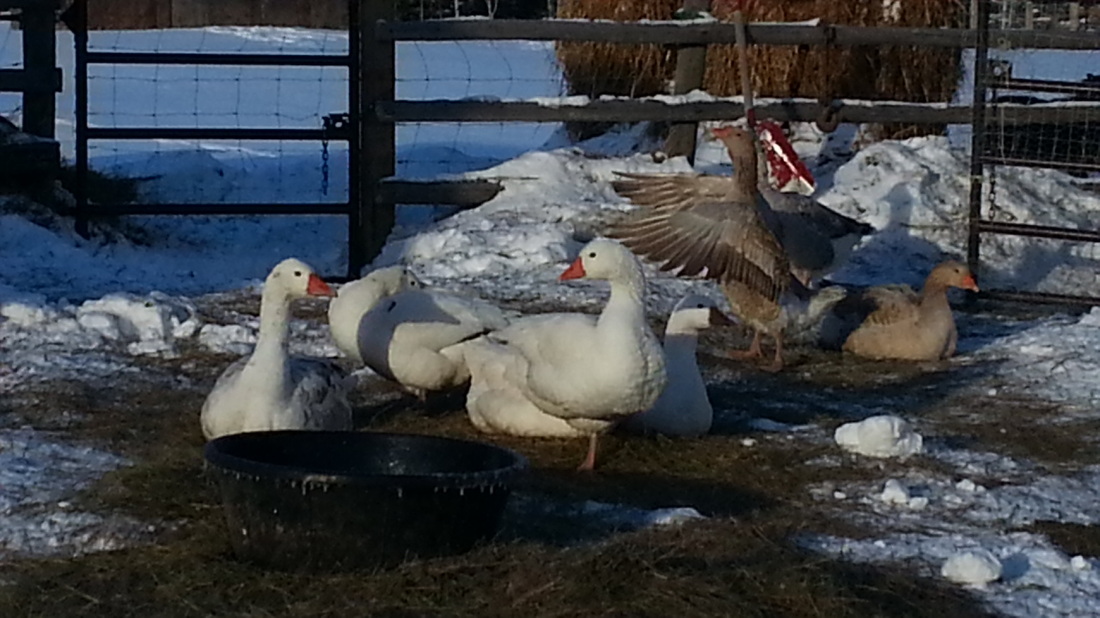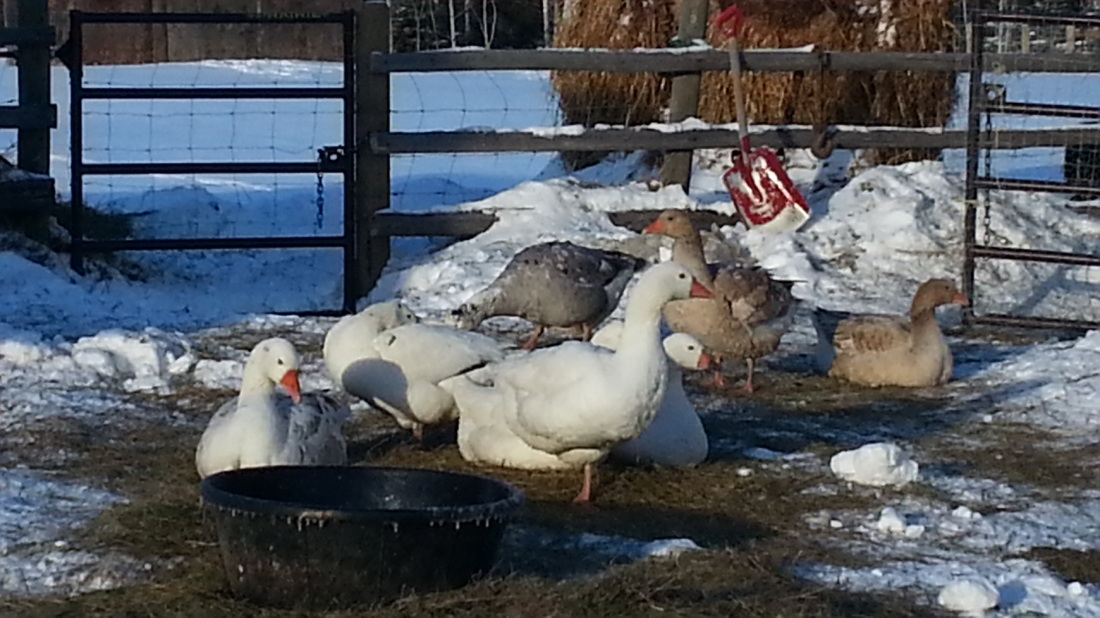So, the five goslings soon were big. I really enjoyed watching them and they greeted me loudly as I approached. They also greeted any others with an even louder voice. I suppose that is how they earned their watch dog reputation.
Then the opportunity arose to buy some American Buff goslings from a local friend.They only had two and a different cross, Toulousse and Buff as well. The three joined the farm with the Saxony ducklings that also came along. The trio of geese and the Saxonies formed a bond and do not like to be separated, that is until lately.
The Embdens hang around together. Today was bright and sunny and only -14, so I let the waterfowl out of their enclosures for the day. The geese all formed a group, sans the Saxony ducks, and waddled around together, bathed together and slept together. Then when it was time to go home, they went to their respective pens. i was sort of wondering if they were beginning to mate for spring, though there is no sign of that behaviour and I have no clue which are males or females. They sure were beautiful basking in the sun together. The Embdens have blue eyes, but are loud and chase the dogs and cats and chickens. The big Toulouse cross must be a gander because a few times he has raised his wings and hissed at me. I just raise my wings and hiss at him and I am much bigger so he quickly backs away, sometimes running. It will be interesting when they start to mate too. Baby goslings are soooooooo cute!
Moab.
The chickens, ducks and geese do not lay in the dead of winter. Here in the frozen north, it is a rare chicken who feels so inspired to continue to produce eggs. Their natural rhythms are such that when the days are short, they instinctively know that it is not the time to reproduce. Many chicken farmers add heat and artificial light to induce laying all the time. The Fat Ewe Farm does provide two heat lamps for the chickens, though the ducks and geese do not require heat, even in 40 below. They must be sheltered from the wind and are grateful for some straw on the ground so their feet do not freeze, but otherwise, they are very hardy. They do not lay in winter though.
Geese are seasonal layers. Once they know it is the time, usually late spring or early summer, they will pair off or sometimes a gander will take two ladies, but not usually and the geese will make a crude nest and begin to lay. Geese are excellent setters and great mothers, so usually can have successful hatches of their own. Some breeds of ducks will become broody and raise a clutch of eggs. Last year, this was so. There were also two hens that raised 10 chicks between them and those 10 birds are now half grown and part of the flock. The chickens have been laying from 3 - 7 eggs daily. Some excess go to the animals, but usually cooked as they can utilize the protein better and for the dogs, it discourages egg stealing. Fluffy is not much of an egg eater so the eggs are gifted to the two seniors who help out on the farm and to friends who come by. Eventually the farm will have fewer hens and only one or two roosters, but winter is not the time to downsize. The more bodies in the coop, the warmer they keep it. Thanks for asking.



 RSS Feed
RSS Feed